-
REVIEW01-01-2018
Family conference in palliative care: concept analysis
Revista Brasileira de Enfermagem. 2018;71(1):206-213
Abstract
REVIEWFamily conference in palliative care: concept analysis
Revista Brasileira de Enfermagem. 2018;71(1):206-213
DOI 10.1590/0034-7167-2016-0055
Views0See moreABSTRACT
Objective:
to analyze the attributes, antecedents and consequents of the family conference concept.
Method:
Walker and Avante’s method for concept analysis and the stages of the integrative review process, with a selection of publications in the PubMed, Cinahl and Lilacs databases focusing on the family conference theme in the context of palliative care.
Results:
the most cited antecedents were the presence of doubts and the need to define a care plan. Family reunion and working instrument were evidenced as attributes. With respect to consequents, to promote the effective communication and to establish a plan of consensual action were the most remarkable elements.
Final considerations:
the scarcity of publications on the subject was observed, as well as and the limitation of the empirical studies to the space of intensive therapy. Thus, by analyzing the attributes, antecedents and consequents of the concept it was possible to follow their evolution and to show their efficacy and effectiveness as a therapeutic intervention.
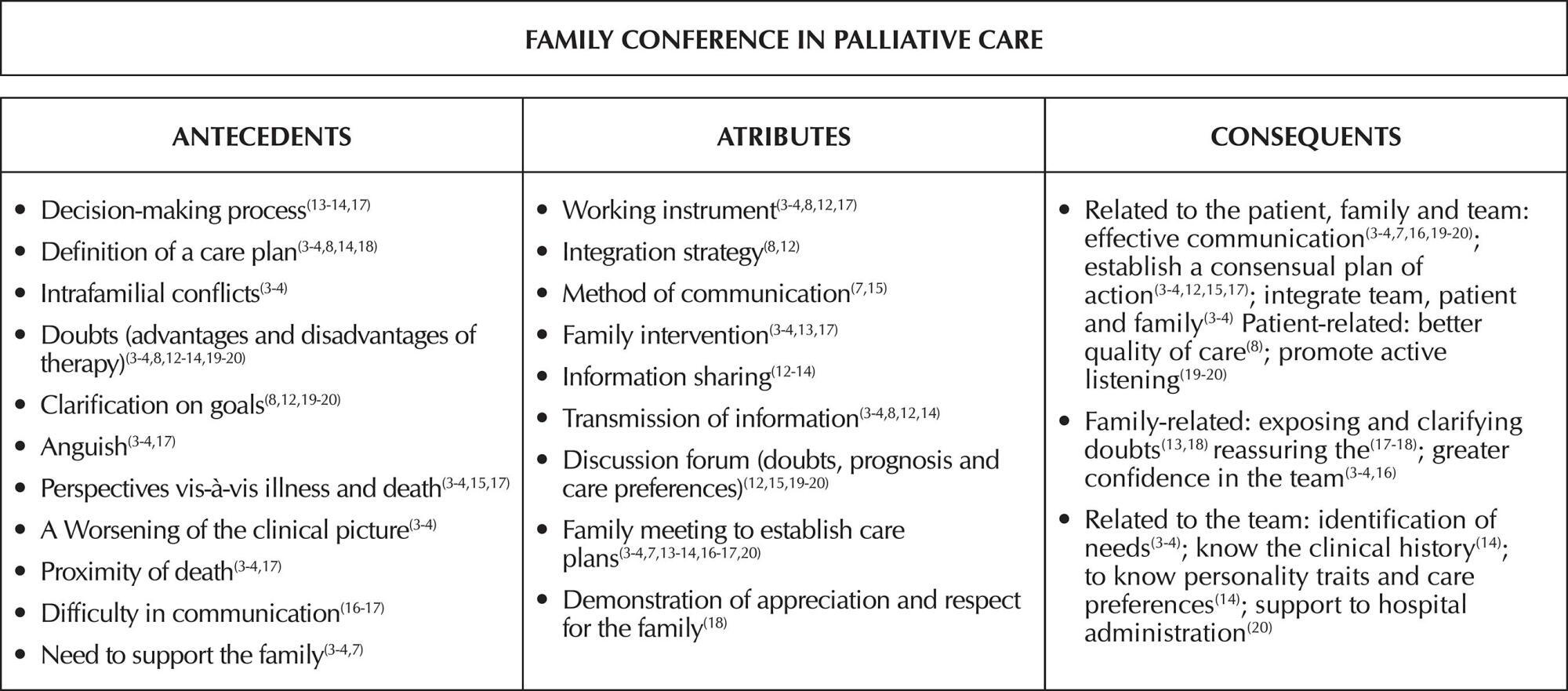
-
REVIEW01-01-2018
Quality of life in adults with sickle cell disease: an integrative review of the literature
Revista Brasileira de Enfermagem. 2018;71(1):195-205
Abstract
REVIEWQuality of life in adults with sickle cell disease: an integrative review of the literature
Revista Brasileira de Enfermagem. 2018;71(1):195-205
DOI 10.1590/0034-7167-2016-0409
Views0See moreABSTRACT
Objective:
To identify the available evidence in the literature on health-related quality of life in adults with sickle cell disease.
Method:
integrative review of MEDLINE, CUMED, LILACS and SciELO databases, from articles developed in this area, published between 2005 and 2015, in English, Portuguese or Spanish.
Results:
22 articles were included, six scales were used to evaluate health-related quality of life scores: three generic and three specific. No specific scale for adults with sickle cell disease has been adapted to Brazilian Portuguese so far. Patients affected by frequent painful crises, with low adherence to treatment, had a compromised quality of life.
Conclusion:
Selected studies have shown that patients with sickle cell disease have worse scores than the general population. These indicators should be instrumental to the nurse in the proposal of interventions and strategies of assistance and socio-educational, with a view to improving the quality of life of this clientele.
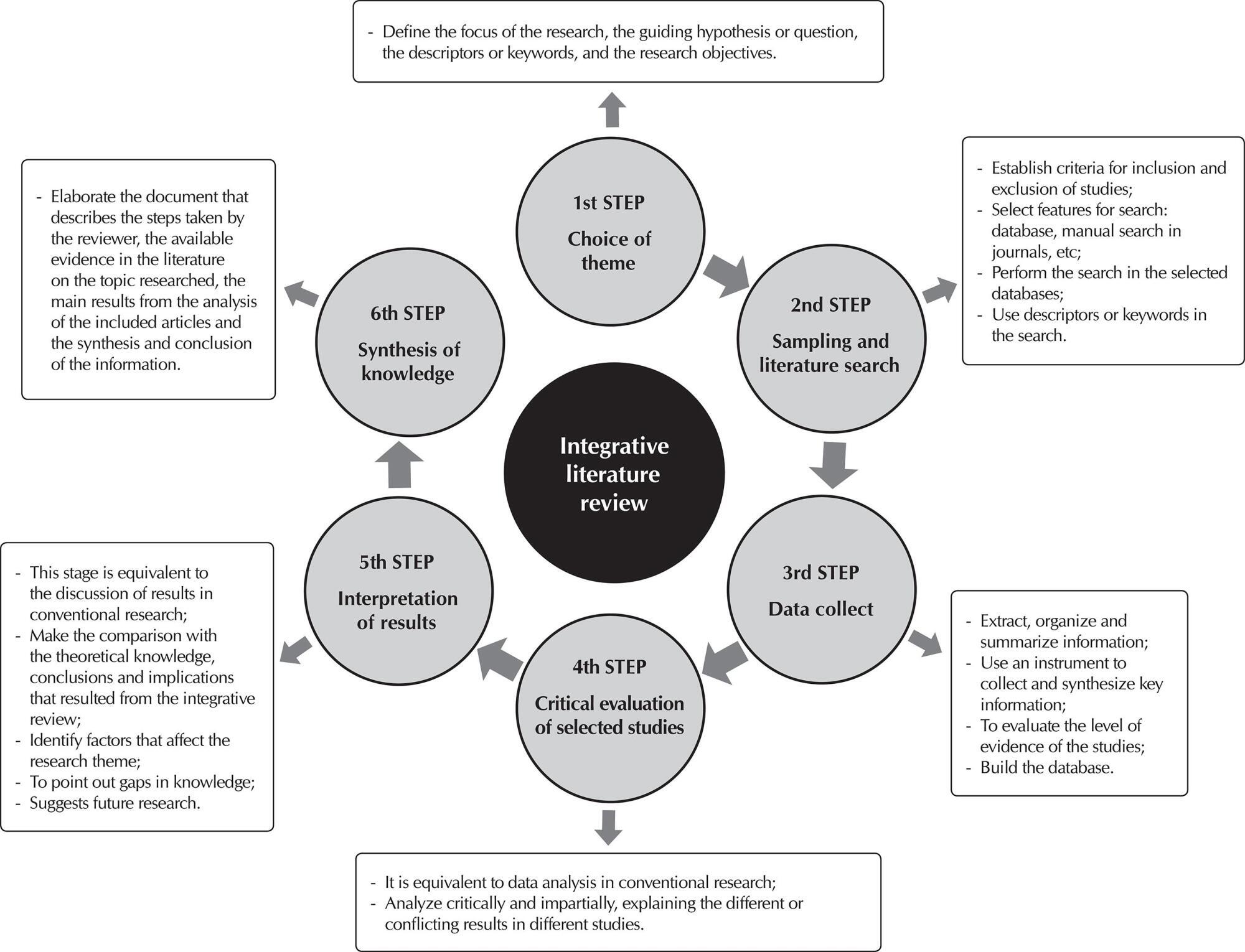
-
REVIEW01-01-2018
Care provided by the father to the child with cancer under the influence of masculinities: qualitative meta-synthesis
Revista Brasileira de Enfermagem. 2018;71(1):185-194
Abstract
REVIEWCare provided by the father to the child with cancer under the influence of masculinities: qualitative meta-synthesis
Revista Brasileira de Enfermagem. 2018;71(1):185-194
DOI 10.1590/0034-7167-2016-0671
Views0See moreABSTRACT
Objective:
To synthesize and interpret findings and conclusions of qualitative research addressing the experience of the father in the care of the child with cancer.
Method:
Meta-synthesis of 16 qualitative studies from six databases, analyzed through taxonomic analysis.
Results:
Child and adolescent cancer have several repercussions on the daily life of the father, especially related to the stigma around the disease, the fear of the unknown and the social and family role. Faced with the illness and the need to care for the child, the father seeks to recover normality in the family and transitions between hegemonic masculine behaviors and practices culturally recognized as female.
Final Considerations:
The complex experience of the father, influenced by masculinities, was evidenced. The limitations regard the restricted understanding of the contextual specificities of the experiences, due to the limited characteristics of the parents and children described in the studies. The knowledge produced is useful to promote involvement of fathers in the care of the child, as well as to strengthen and assist him in this task.
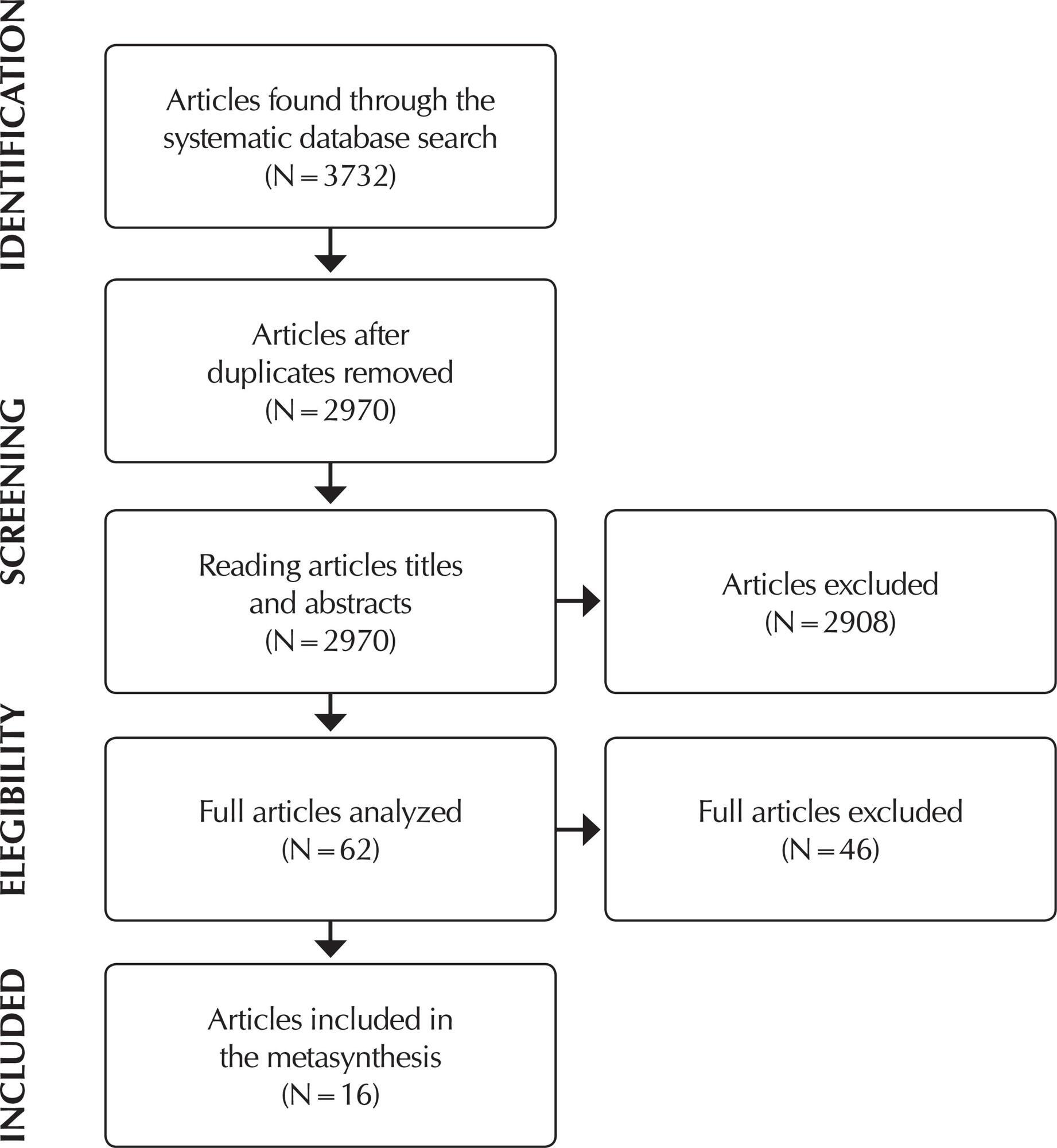
-
RESEARCH01-01-2018
Naturalization, reciprocity and marks of marital violence: male defendants’ perceptions
Revista Brasileira de Enfermagem. 2018;71(1):178-184
Abstract
RESEARCHNaturalization, reciprocity and marks of marital violence: male defendants’ perceptions
Revista Brasileira de Enfermagem. 2018;71(1):178-184
DOI 10.1590/0034-7167-2016-0475
Views0See moreABSTRACT
Objective:
to analyze male criminals’ perception about marital violence.
Method:
An exploratory, descriptive, qualitative study undertaken with 23 men who were criminally prosecuted for marital violence. A multimethod data collection was conducted, with individual interview and focal group techniques combined, between May and December 2015. The data collected were initially categorized using the NVIVO® 11 software program, and then organized using the Collective Subject Discourse method.
Results:
the collective discourses reveal that, in the male’s perception, conjugal violence is inherent in a marital relationships: it is a private, reciprocal problem that leaves body marks.
Conclusion:
gender dissymmetry as a social construct is evidenced, signaling the need to create spaces for reflection and re-signification of men and women, from a gender perspective.
-
RESEARCH01-01-2018
Impact of critical illness news on the family: hermeneutic phenomenological study
Revista Brasileira de Enfermagem. 2018;71(1):170-177
Abstract
RESEARCHImpact of critical illness news on the family: hermeneutic phenomenological study
Revista Brasileira de Enfermagem. 2018;71(1):170-177
DOI 10.1590/0034-7167-2016-0163
Views0See moreABSTRACT
Objective:
Understand the impact of critical-illness news on the experience of family members at an Intensive Care Unit.
Method:
Phenomenological approach according to Van Manen’s method. Open interviews were held with 21 family members. From analysis and interpretation of the data, three essential themes were identified: the unexpected; the pronouncement of death; and the impact on self-caring within the family. The study complied with the ethical principles inherent to research involving humans.
Results:
The unexpected news and death of the sick person influence the well-being and self-care of family members, affecting their ability for analysis and decision making. It was observed that the family experiences the news with suffering, mainly due to the anticipation arising from the events.
Final considerations:
The humanity of nurses was revealed in response to the needs of the family. In view of the requirements for information, it was verified that the information transmitted allowed them to become aware of themselves, to become empowered in their daily lives and to alleviate the emotional burden experienced.
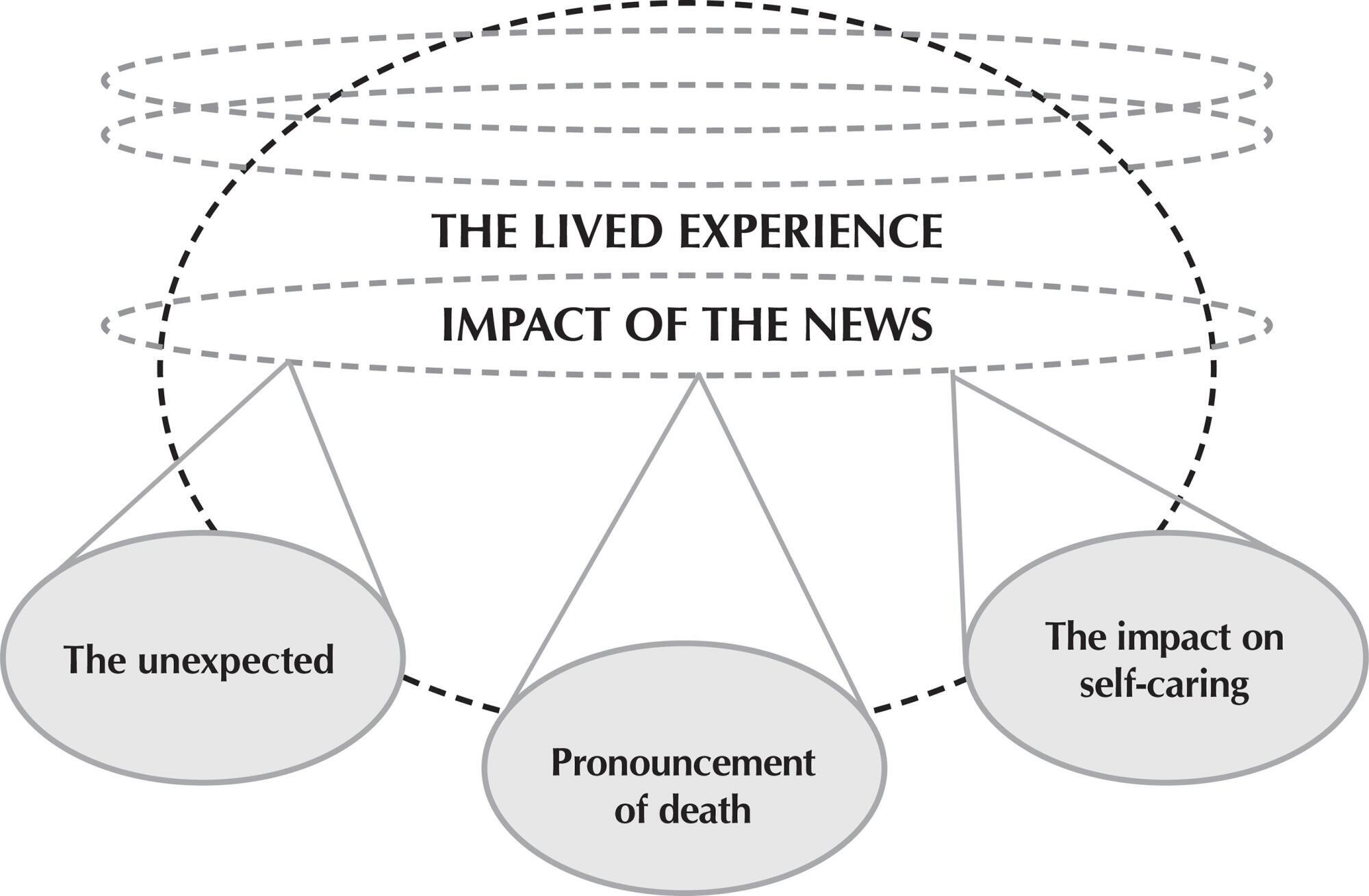
-
RESEARCH01-01-2018
Surveillance of intradomiciliary contacts of leprosy cases: perspective of the client in a hyperendemic municipality
Revista Brasileira de Enfermagem. 2018;71(1):163-169
Abstract
RESEARCHSurveillance of intradomiciliary contacts of leprosy cases: perspective of the client in a hyperendemic municipality
Revista Brasileira de Enfermagem. 2018;71(1):163-169
DOI 10.1590/0034-7167-2016-0607
Views0See moreABSTRACT
Objective:
To characterize approach methods for intradomiciliary contacts (IdC) of leprosy cases resident in Northern Brazil, during 2001-2012.
Method:
A cross-sectional and descriptive study in the state of Rondônia. Included IdC of leprosy cases diagnosed/reported in SINAN-Ministry of Health (MS), 2001-2012. A semi-structured instrument was applied to the IdCs, with six interventions: complete dermatological examination; complete neurological examination; BCG vaccination; instructions for return to the health unit; BCG guidance; and guidance to mobilize other contacts.
Conclusion:
Despite the favorable indicators of IdC examination coverage in the state, the evaluation process presents patterns that indicate operational quality failures.
-
RESEARCH01-01-2018
Enhancing the process of teaching and learning homecare
Revista Brasileira de Enfermagem. 2018;71(1):156-162
Abstract
RESEARCHEnhancing the process of teaching and learning homecare
Revista Brasileira de Enfermagem. 2018;71(1):156-162
DOI 10.1590/0034-7167-2016-0541
Views0See moreABSTRACT
Objective:
to identify possibilities for improvement in the process of teaching and learning homecare in nursing, pharmacy, medicine, nutrition, dentistry and occupational therapy courses.
Method:
qualitative research using the Grounded Theory approach. Sixty-three semi-structured interviews were conducted with students, teachers and graduates of the six mentioned courses at a public university in the south of Brazil. Data analysis was performed through open, axial and selective coding.
Results:
the possibilities for improving the process of teaching and learning homecare included: scientific production in the area; use of different teaching techniques; development of extracurricular activities; extension projects; curricular reformulation; and laboratory simulation.
Final considerations:
the strategies cited in this study enable undergraduate courses in health to envisage the possibility of enhance the process of teaching and learning homecare.
-
RESEARCH01-01-2018
Trends in the job market of nurses in the view of managers
Revista Brasileira de Enfermagem. 2018;71(1):148-155
Abstract
RESEARCHTrends in the job market of nurses in the view of managers
Revista Brasileira de Enfermagem. 2018;71(1):148-155
DOI 10.1590/0034-7167-2016-0103
Views0See moreABSTRACT
Objective:
to identify and interpret the main trends of the labor market for nurses in Rio Grande do Norte, based on the opinion of managers of training institutions and employers.
Method:
Data were collected through interviews with key informants, organized using Atlas.ti software resources and examined under the thematic content review.
Results:
the study showed six trends in the labor market of nurses: availability of professionals to the market; worsening working conditions with precariousness; indication for insertion in employment; unemployment for nurses; shortage of nurses; and the existence of a cooperative of nursing professionals.
Final considerations:
the current scenario of growth in the number of registered nurses without the expansion of the job supply has remained, unemployment tends to increase and work conditions will worsen.
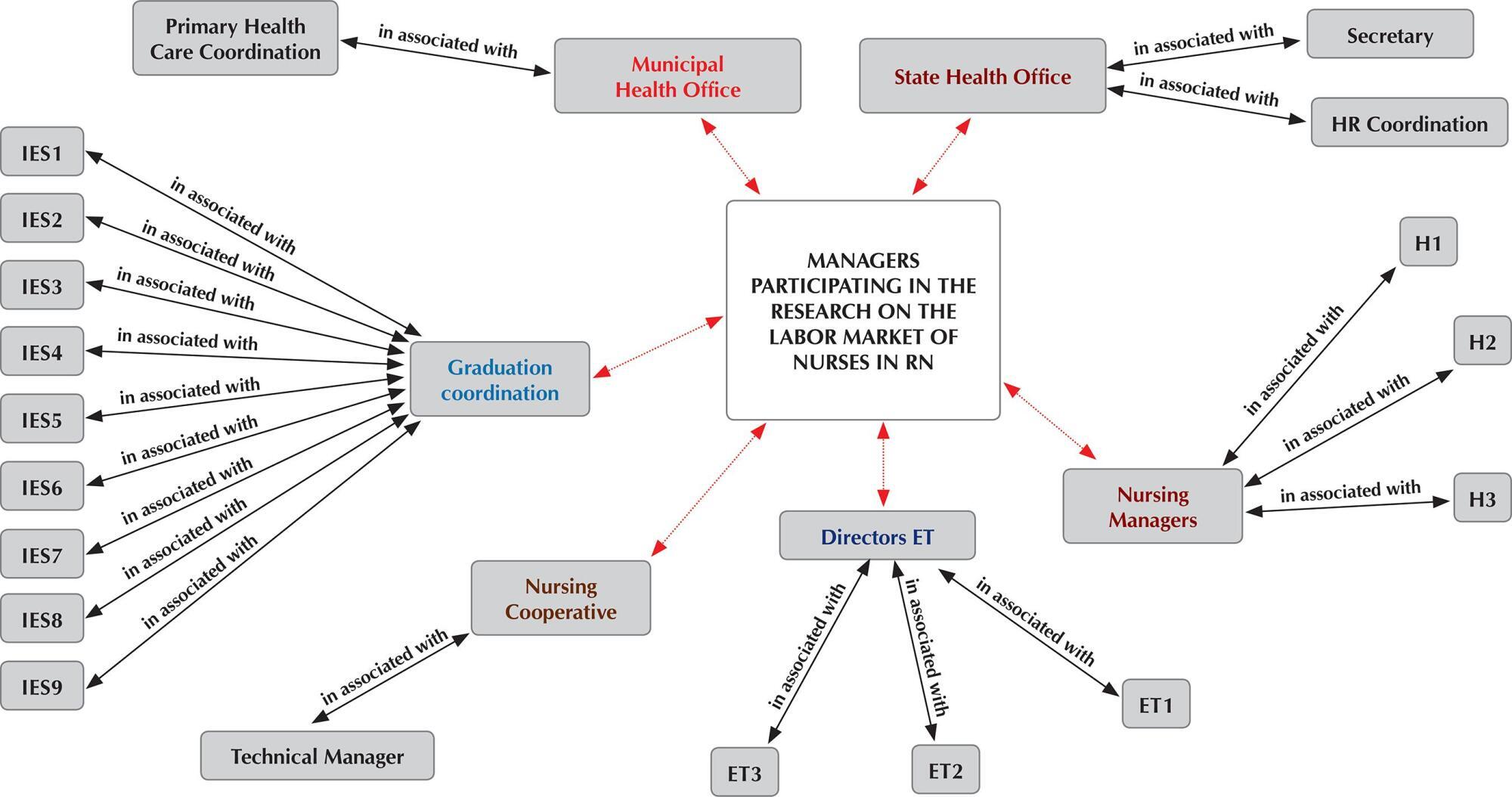
-
ORIGINAL ARTICLE12-16-2024
Health literacy development of Primary Health Care patients: qualitative research
Revista Brasileira de Enfermagem. 2024;77(6):e20240154
Abstract
ORIGINAL ARTICLEHealth literacy development of Primary Health Care patients: qualitative research
Revista Brasileira de Enfermagem. 2024;77(6):e20240154
DOI 10.1590/0034-7167-2024-0154
Views0ABSTRACT
Objectives:
to identify the process of health literacy development among primary care patients, relating it to their self-care practices.
Methods:
qualitative, prospective research with 22 patients from two Family Health Strategy units. Data were obtained through individual semi-structured interviews, examined through descriptive statistics and thematic content analysis.
Results:
the results discuss how participants learn about health and how this resonates in their behaviors, culminating in two thematic categories: “Health knowledge construction”; and “Dialogue between health knowledge construction and patient care actions”.
Final Considerations:
health knowledge is developed mainly through interpersonal relationships, mediated by health professionals through bonding and communication. Community educational actions and training of health professionals in communication can promote health literacy and self-care among patients.
Keywords:Chronic DiseaseHealth LiteracyPrimary Health CareQualitative ResearchWorld Health OrganizationSee more
-
ORIGINAL ARTICLE12-16-2024
Analysis of omission of antimicrobial doses in Intensive Care Units
Revista Brasileira de Enfermagem. 2024;77(6):e20240102
Abstract
ORIGINAL ARTICLEAnalysis of omission of antimicrobial doses in Intensive Care Units
Revista Brasileira de Enfermagem. 2024;77(6):e20240102
DOI 10.1590/0034-7167-2024-0102
Views0ABSTRACT
Objectives:
to analyze the rate of antimicrobial dose omission in intensive care units.
Methods:
cross-sectional study carried out between March 1 and September 30, 2023, in intensive care units of a University Hospital in Rio de Janeiro.
Results:
the sample consisted of 452 prescriptions and 1467 antimicrobial doses. The dose omission rate was 4.29%. Each antimicrobial prescribed increased the chance of omission by 51%. The strategy of double-checking prescriptions helped prevent 30% of antimicrobial dose omissions (p=0.0001).
Conclusions:
monitoring the omission of antimicrobial doses can guide nursing actions to improve quality and patient safety, contributing to the prevention of medication errors, antimicrobial stewardship and the fight against antimicrobial resistance.
Keywords:Anti-Infective AgentsAntimicrobial StewardshipIntensive Care UnitsMedication errorsPatient SafetySee more -
REVIEW12-16-2024
Recommendations for guidelines for promoting mental health in the workplace: an umbrella review
Revista Brasileira de Enfermagem. 2024;77(6):e20240086
Abstract
REVIEWRecommendations for guidelines for promoting mental health in the workplace: an umbrella review
Revista Brasileira de Enfermagem. 2024;77(6):e20240086
DOI 10.1590/0034-7167-2024-0086
Views1See moreABSTRACT
Objectives:
to summarize the recommendations of guidelines for promoting mental health in the workplace.
Methods:
an umbrella review, according to Joanna Briggs Institute and Preferred Reporting Items for Systematic reviews and Meta-Analyses methodological assumptions. Data collection was carried out in January 2021 and updated in July 2023 in the American Psychological Association, Cochrane Library, EMBASE, National Library of Medicine, and Scopus databases. Systematic reviews that assessed guidelines with recommendations for mental health care for workers were included. PROSPERO registration CRD42023461845.
Results:
four systematic reviews published between 2015 and 2018 were identified. The abstracts highlighted actions that facilitate and inhibit the recommendations as well as three categories of intervention: primary prevention – worker protection; secondary prevention – promoting workers’ mental health; and tertiary prevention – supporting, monitoring and rehabilitating workers upon returning to work.
Conclusions:
the interventions are based on prevention, promotion and early recognition, support and rehabilitation of mental health problems.

-
ORIGINAL ARTICLE12-16-2024
Psychometric analysis of ProQOL-BR in nursing: building hospital safety and protection
Revista Brasileira de Enfermagem. 2024;77(6):e20240085
Abstract
ORIGINAL ARTICLEPsychometric analysis of ProQOL-BR in nursing: building hospital safety and protection
Revista Brasileira de Enfermagem. 2024;77(6):e20240085
DOI 10.1590/0034-7167-2024-0085
Views0ABSTRACT
Objectives:
to analyze the psychometric properties of the ProQOL-BR instrument in hospital nursing professionals.
Methods:
a methodological study to validate the ProQOL-BR. Confirmatory factor analysis, assessment of local and global adjustment quality, Pearson hypothesis testing and Cronbach’s alpha internal consistency analysis were used.
Results:
a total of 490 professionals participated. The model presents adequate quality due to factor weights (λ≥ 0.40), acceptable overall fit quality and adequate chi-square ratio and degrees of freedom (χ2/g.1=2.51) for the parameters of CFI (0.923), GFI (0.902), TLI (0.914) and RMSEA (0.042). In terms of validity, it was shown to be adequate with CC=0.89. The internal consistency obtained by standardized Cronbach’s alpha was 0.761. Criterion validity was shown to be favorable with significant correlations (0.001).
Conclusions:
the instrument was validated regarding content, criteria and reliability. Three questions were removed from the original instrument, ProQOL-BR, leaving the final instrument with 25 questions.
Keywords:BurnoutHealth Status IndicatorsNursing StaffQuality of Professional LifeValidation Studies as TopicSee more
-
TECHNOLOGICAL INNOVATION12-16-2024
GerenciaDOR™: development of digital technology by nurses for the assessment of patients with chronic pain
Revista Brasileira de Enfermagem. 2024;77(6):e20240050
Abstract
TECHNOLOGICAL INNOVATIONGerenciaDOR™: development of digital technology by nurses for the assessment of patients with chronic pain
Revista Brasileira de Enfermagem. 2024;77(6):e20240050
DOI 10.1590/0034-7167-2024-0050
Views0See moreABSTRACT
Objectives:
to develop a digital technological solution (prototype) for assessing patients with chronic pain.
Methods:
this is a methodological and technological development study based on the Human-Centered Design framework and the principles of Patient-Centered Care. The prototype guides patients through a body diagram and directs them to an evaluation using specific instruments that address the multidimensional aspects of chronic pain.
Results:
the GerenciaDOR* project enables navigation through the Web App screens, providing access to pain assessment features up to the presentation of results.
Final Considerations:
the study describes a systematic approach to pain assessment and expands nurses’ knowledge in pain management. Additionally, it can promote the development of other digital technologies for chronic pain assessment and contribute to a multidisciplinary, patient centered treatment.

-
ORIGINAL ARTICLE12-16-2024
Respectful care for postpartum women with sickle cell disease: a netnographic study
Revista Brasileira de Enfermagem. 2024;77(6):e20230545
Abstract
ORIGINAL ARTICLERespectful care for postpartum women with sickle cell disease: a netnographic study
Revista Brasileira de Enfermagem. 2024;77(6):e20230545
DOI 10.1590/0034-7167-2023-0545
Views0See moreABSTRACT
Objectives:
to analyze principles of respectful maternity care in narratives of postpartum women with sickle cell disease, relating them to Sustainable Development Goals.
Methods:
netnographic study, with two videos published in 2020. Deductive iconographic and thematic analysis by Respectful Maternity Care Charter, organized in MAXQDA.
Results:
principles identified were the right to: freedom from harm and ill-treatment; information, informed consent, refusal of medical procedures, and respect for their choices and preferences including companion; be considered a person from birth, with dignified and respectful treatment; health at the highest possible level; newborns being with their parents or guardians. The Sustainable Development Goals for women by 2030 were not positively contemplated in postpartum women’s experience.
Final Considerations:
it is appropriate that health workers qualify themselves to provide respectful maternity care, with qualified listening, understanding, and resolution of unique demands of postpartum women with sickle cell disease, seeking equality in care for women.

-
ORIGINAL ARTICLE12-16-2024
Construction and validation of an educational game on biosafety in the central sterile supply department
Revista Brasileira de Enfermagem. 2024;77(6):e20230478
Abstract
ORIGINAL ARTICLEConstruction and validation of an educational game on biosafety in the central sterile supply department
Revista Brasileira de Enfermagem. 2024;77(6):e20230478
DOI 10.1590/0034-7167-2023-0478
Views0See moreABSTRACT
Objectives:
to construct and validate an educational game on biosafety in the Central Sterile Supply Department of a hospital in Curitiba, PR.
Methods:
the study was conducted using a quantitative approach, employing applied and technological research with an exploratory design. The process was divided into six stages, from the definition of the theme to the validation and application of the game. The study was carried out from May to August 2022, involving 17 nursing professionals from a Central Sterile Supply Department during day and night shifts, as well as 9 judges.
Results:
the study resulted in the construction of a board game named by the authors as “My Health First.”
Conclusions:
the research achieved its objective of constructing and validating an educational game. By reflecting on professional practice and correlating the occupational risks present, the professionals were able to list safe actions, identify problems, and seek solutions.

-
ORIGINAL ARTICLE12-16-2024
Training profile of intensive care nurses in Brazil: cross-sectional study
Revista Brasileira de Enfermagem. 2024;77(6):e20230460
Abstract
ORIGINAL ARTICLETraining profile of intensive care nurses in Brazil: cross-sectional study
Revista Brasileira de Enfermagem. 2024;77(6):e20230460
DOI 10.1590/0034-7167-2023-0460
Views0ABSTRACT
Objectives:
to describe the training profile of Brazilian intensive care nurses.
Methods:
a cross-sectional study carried out in two stages: a structured, self-administered questionnaire; mapping of the national supply of lato sensu postgraduate courses. Data was collected on the sociodemographic profile, training process and characterization of the courses.
Results:
in the first stage, 202 respondents were obtained. The majority were women (79.2%), aged between 26 and 45 (80.7%), graduated less than 5 years ago (44%), through lato sensu postgraduate courses (55.5%), which were marked by the absence of laboratory practice (57.5%) and guided tours (42.5%). In the second stage, 457 courses were identified, with face-to-face teaching (58.9%), a workload of 360 to 420 hours (51.2%), a duration of up to 6 months (41.8%) and variation in the sub-area of training.
Conclusions:
there was a predominance of professionals graduating from lato sensu post-graduate courses, with essentially theoretical teaching and heterogeneity in terms of modality, workload and sub-area of training.
Keywords:Critical Care NursingEducationIntensive Care UnitsNursing EducationNursing, GraduateProfessional PracticeSee more
-
ORIGINAL ARTICLE12-13-2024
Nurses’ experience regarding patient safety in mobile pre-hospital care
Revista Brasileira de Enfermagem. 2024;77(5):e20230529
Abstract
ORIGINAL ARTICLENurses’ experience regarding patient safety in mobile pre-hospital care
Revista Brasileira de Enfermagem. 2024;77(5):e20230529
DOI 10.1590/0034-7167-2023-0529
Views0See moreABSTRACT
Objectives:
to understand nurses’ experience regarding patient safety in mobile pre-hospital care.
Method:
a qualitative, exploratory and descriptive study, conducted with nurses active in mobile pre-hospital care services. Semi-structured interviews were conducted, audio-graved and submitted to Bardin’s content analysis.
Results:
from four thematic categories established, nurses reported the care and management skills necessary to work in this service. They demonstrated a commitment to ensuring safe care for patients, staff and spectators. They highlighted the actions taken to prevent and mitigate incidents. However, they based their experiences on practice protocols and individual actions, expressing the need to improve knowledge about patient safety.
Final Considerations:
mobile pre-hospital care nurses’ experience in relation to patient safety was limited, suggesting the need for training on the subject, alignment of work processes and implementation of strategies, aiming to guarantee safe care.
-
ORIGINAL ARTICLE12-13-2024
Repercussions of the pandemic on tuberculosis control actions from the perspective of health professionals
Revista Brasileira de Enfermagem. 2024;77(5):e20230477
Abstract
ORIGINAL ARTICLERepercussions of the pandemic on tuberculosis control actions from the perspective of health professionals
Revista Brasileira de Enfermagem. 2024;77(5):e20230477
DOI 10.1590/0034-7167-2023-0477
Views0See moreABSTRACT
Objectives:
to analyze the repercussions of the COVID-19 pandemic on tuberculosis control actions from the perspective of primary health care professionals.
Methods:
this descriptive study with a qualitative approach was conducted from November 2022 to April 2023, using semi-structured interviews with 11 key informant professionals from primary health care units in a Brazilian capital. Data were organized using Atlas.ti 22.0 software and subjected to thematic-categorical content analysis.
Results:
the pandemic scenario caused alterations in the work process, necessitating abrupt adaptations, and led to detrimental impacts on the health of professionals and tuberculosis control actions, which were reduced or discontinued.
Final Considerations:
there was evident unpreparedness and a lack of resources from various governmental levels and health services to handle the public health emergency situation without severe harm to the provision of essential services.
-
Training of Brazilian indigenous nurses: between human rights, valuing diversity and inclusion
Revista Brasileira de Enfermagem. 2024;77(5):e20230430
Abstract
Training of Brazilian indigenous nurses: between human rights, valuing diversity and inclusion
Revista Brasileira de Enfermagem. 2024;77(5):e20230430
DOI 10.1590/0034-7167-2023-0430
Views0See moreABSTRACT
Objectives:
to analyze the possibilities and potential of training indigenous nurses, given the Brazilian Health System (SUS), understanding the relationships between education and health.
Methods:
theoretical-reflective study, based on scientific literature, aligned with the experience, critical thinking of its authors and the Sustainable Development Goals in Brazil.
Results:
this text articulates three axes: Potential for including indigenous students in nursing training; Paths to achieving equity through inclusion and retention policies for indigenous students at different levels; and Implications of this for the SUS and global health.
Final Considerations:
indigenous students, beneficiaries of affirmative actions, face challenges of inclusion and retention in public universities that directly impact their academic training. Added to this are the difficulties identified in basic education, professor training and implementation of permanence policies, with consequences for services and training at other levels.
-
ORIGINAL ARTICLE12-13-2024
Interobserver agreement in Reception and Risk Stratification in Obstetrics implementation
Revista Brasileira de Enfermagem. 2024;77(5):e20230361
Abstract
ORIGINAL ARTICLEInterobserver agreement in Reception and Risk Stratification in Obstetrics implementation
Revista Brasileira de Enfermagem. 2024;77(5):e20230361
DOI 10.1590/0034-7167-2023-0361
Views0See moreABSTRACT
Objectives:
to analyze interobserver agreement in the Reception and Risk Stratification in Obstetrics protocol implementation.
Methods:
a cross-sectional study carried out during Reception and Risk Stratification in Obstetrics implementation, conducted in a tertiary hospital in southern Brazil with 891 participants in January 2020. Descriptive and interobserver agreement analysis was carried out using the Kappa coefficient in the risk stratification assigned by the triage nurse and reviewed by the researcher.
Results:
around half of the calls (55.6%) were stratified as not very urgent (green), followed by urgent (yellow) (31.8%), very urgent (orange) (9.3%), not urgent (blue) (3.4%) and no emerging stratification (red). Agreement analysis of revised stratification found Kappa values of 0.20 (blue), 0.54 (green), 0.77 (yellow) and 0.80 (orange).
Conclusions:
most appointments were non-urgent. The agreement analysis between the revised and assigned risk stratification revealed greater interobserver agreement as the priority level increased.
-
ORIGINAL ARTICLE12-13-2024
Adaptation and implementation of a Nursing care protocol for children in the Amazon Region
Revista Brasileira de Enfermagem. 2024;77(5):e20230245
Abstract
ORIGINAL ARTICLEAdaptation and implementation of a Nursing care protocol for children in the Amazon Region
Revista Brasileira de Enfermagem. 2024;77(5):e20230245
DOI 10.1590/0034-7167-2023-0245
Views0See moreABSTRACT
Objectives:
to describe the process of implementing an adapted protocol for pediatric nursing care in a health unit located in a municipality in the Amazon Region.
Methods:
methodological research conducted in a basic health unit with four family health teams in the state of Rondônia, involving seven nursing professionals. Data collection occurred between October 2020 and April 2022, following the research phases: situational diagnosis, exploratory phase, protocol definition, implementation, and evaluation.
Results:
the outcome was the adaptation and implementation of a nursing care protocol for children.
Final Considerations:
the adaptation and implementation process can be an effective approach to improving care, strengthening nursing as a profession with a solid foundation in scientific and clinical evidence. This facilitates early problem identification and appropriate guidance, leading to better health outcomes for children.
-
ORIGINAL ARTICLE12-13-2024
Nurses’ experiences in caring for people with mental health problems hospitalized due to clinical comorbidities
Revista Brasileira de Enfermagem. 2024;77(5):e20230136
Abstract
ORIGINAL ARTICLENurses’ experiences in caring for people with mental health problems hospitalized due to clinical comorbidities
Revista Brasileira de Enfermagem. 2024;77(5):e20230136
DOI 10.1590/0034-7167-2023-0136
Views0See moreABSTRACT
Objectives:
to understand nurses’ experiences in caring for people with mental health problems hospitalized due to clinical comorbidities in non-psychiatric Inpatient Units.
Methods:
qualitative study, guided by Alfred Schutz’s social phenomenology. Sixteen phenomenological interviews were conducted. The content was analyzed and discussed based on the literature, through the composition of three categories of analysis.
Results:
three categories emerged in the study: Challenges in care faced by nurses; Fragmented care action; and Ideal care. The disarticulation of the clinic was revealed, as described by nurses, showing care as an action far removed from the comprehensiveness of a person. Nurses’ performance is guided predominantly by biomedical reference, disregarding appreciation of subjectivity.
Final Considerations:
it was observed that nurses attribute the responsibility for patient care to factors external to their life-world, when, in fact, these aspects should be components that help them in comprehensive care construction.
-
REVIEW11-29-2024
Assessment of knowledge in oncology about care for transgender people: a scoping review
Revista Brasileira de Enfermagem. 2024;77:e20230532
Abstract
REVIEWAssessment of knowledge in oncology about care for transgender people: a scoping review
Revista Brasileira de Enfermagem. 2024;77:e20230532
DOI 10.1590/0034-7167-2023-0532
Views0ABSTRACT
Objective:
to identify evidence available in the literature on instruments and methodologies used to assess healthcare professionals’ knowledge about cancer care for the transgender population.
Methods:
a scoping review was conducted in seven databases, including studies that answered the question: what is the healthcare professionals’ level of knowledge about cancer care for the transgender population?
Results:
forty-one articles were selected that dealt specifically with healthcare professionals’knowledge in relation to care for the LGBTQIAPN+ population, especially the transgender population. Eighteen studies assessed patients’ perceptions of professionals’knowledge, whereas other studies used their own assessment tools, considering the global context of LGBTQIAPN+ health.
Conclusions:
there is no tested and validated instrument that assesses the knowledge about the transgender population’s oncological health, highlighting the need to construct and validate an instrument focused on this population’s needs.
Keywords:Health Services for Transgender PeopleNeoplasmsOncologyProfessional TrainingTransgender PeopleSee more
Search
Search in:
Nuvem de Tags
Aged (144) Atenção Primária à Saúde (239) COVID-19 (104) Cuidados de Enfermagem (269) Educação em Enfermagem (151) Educação em Saúde (139) Enfermagem (930) Estudos de Validação (131) Health Education (144) Idoso (208) Mental Health (149) Nursing (987) Nursing Care (306) Patient Safety (151) Primary Health Care (284) Qualidade de Vida (104) Quality of Life (106) Saúde Mental (145) Segurança do Paciente (150) Validation Studies (108)



